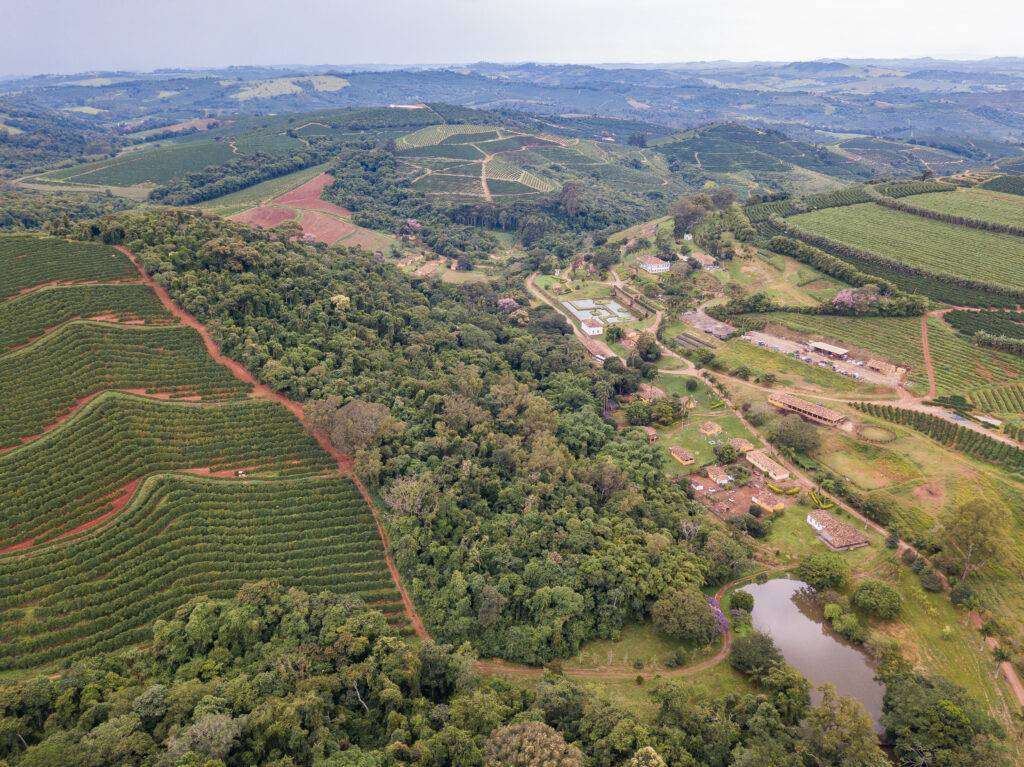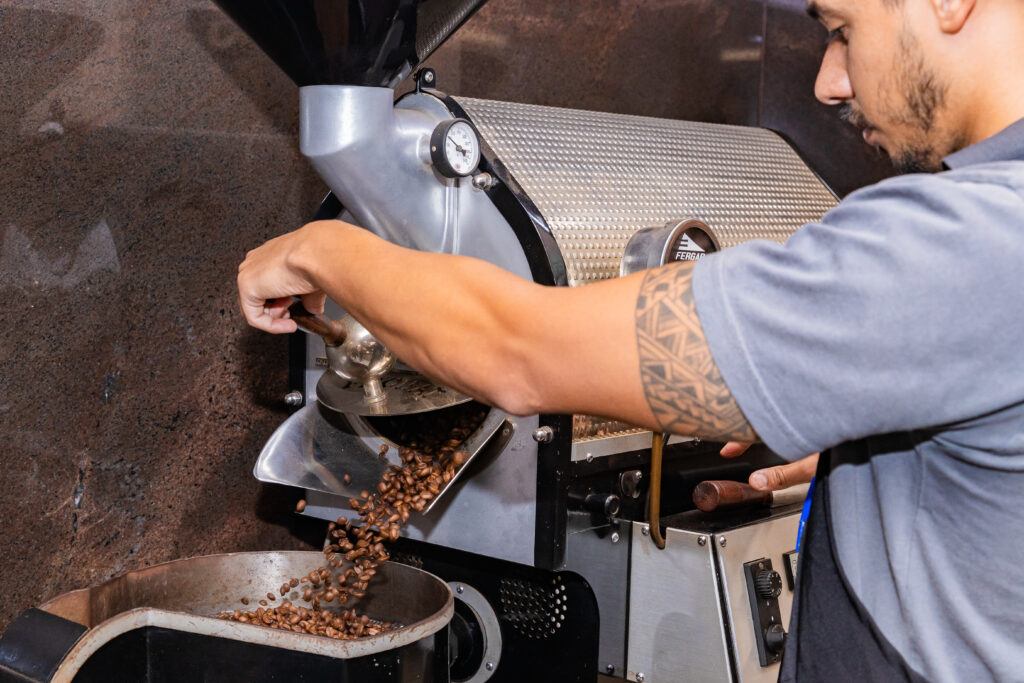Coffee is more than just a beverage; it’s a cultural phenomenon that has captivated the world for centuries. Among the many coffee-producing regions, Brazil stands out as a powerhouse, renowned for its unique and flavorful offerings. In this blog post, we’ll delve into the world of Brazil Cerrado coffee, exploring its origins, flavors, and the journey it takes from the Cerrado region to your cup. Additionally, we will discuss how climate change is impacting the production of this exceptional coffee.
The Cerrado: Brazil’s Unique Coffee-Growing Region
The Cerrado, a vast tropical savanna ecoregion that covers nearly a quarter of Brazil’s landmass, is the birthplace of some of the country’s most exceptional coffee. This region, characterized by its distinct climate and soil composition, provides the perfect conditions for cultivating coffee with unparalleled flavors and aromas.
Unlike the lush rainforests found in other coffee-growing regions, the Cerrado boasts a semi-arid climate with well-defined wet and dry seasons. This unique environment forces the coffee plants to develop deep root systems, enabling them to access water and nutrients from the nutrient-rich soil. The result is a coffee bean that is dense, full-bodied, and bursting with complex flavors.
The Terroir of Brazil Cerrado Coffee
The term “terroir” is often associated with wine, but it applies equally to coffee. The terroir encompasses the unique combination of soil, climate, and topography that imparts distinct characteristics to the coffee beans grown in a specific region. In the case of Brazil Cerrado coffee, the terroir is truly one-of-a-kind.

The Cerrado’s soil is rich in minerals, particularly iron and aluminum, which contribute to the coffee’s distinctive flavor profile. The region’s high altitude, ranging from 800 to 1,200 meters above sea level, also plays a crucial role in the coffee’s development. The cooler temperatures and lower oxygen levels at these elevations slow down the maturation process, allowing the coffee beans to develop more complex flavors and aromas.
Flavor Profiles of Brazil Cerrado Coffee
Brazilian specialty coffee, particularly those from the Cerrado region, are known for their unique and diverse flavor profiles. While each coffee farm and micro-region may produce slightly different notes, there are some common characteristics that define Brazil Cerrado coffee.
One of the most notable traits is the coffee’s nutty and chocolatey undertones. These flavors are often accompanied by hints of caramel, toast, and even a subtle fruitiness reminiscent of dried berries or citrus. The coffee’s body is typically full and velvety, with a smooth and creamy mouthfeel that lingers pleasantly on the palate.
Additionally, Brazil Cerrado coffee is renowned for its low acidity, making it an excellent choice for those who prefer a more mellow and balanced cup. This low acidity is a result of the coffee’s slower maturation process and the region’s unique terroir.
Sustainable Farming Practices
Brazil is not only known for its exceptional coffee but also for its commitment to sustainable farming practices. Many coffee growers in the Cerrado region have embraced environmentally friendly methods, such as shade-grown cultivation, water conservation techniques, and the use of organic fertilizers.
These sustainable practices not only protect the delicate ecosystem of the Cerrado but also contribute to the unique flavors and aromas of the coffee. By working in harmony with nature, farmers can produce coffee that truly reflects the essence of the region, while ensuring the long-term viability of their farms and the preservation of the environment.
Climate Change and Its Impact on Brazil Cerrado Coffee
Climate change poses a significant threat to coffee production worldwide, and the Cerrado region of Brazil is no exception. The impacts of climate change on Brazilian specialty coffee are multifaceted, affecting both temperature and rainfall patterns, which are crucial for coffee cultivation.
Temperature Increases
Since 1974, temperatures in Brazilian coffee-growing municipalities have been increasing by approximately 0.25 °C per decade[1]. This rise in temperature can have several adverse effects on coffee plants. For instance, temperatures above 33 degrees Celsius during the reproductive phase of Arabica coffee can lead to physiological stress, resulting in the loss of flowers and fruits[5]. This stress can significantly reduce coffee yields and affect the quality of the beans.
Changes in Rainfall Patterns
In addition to rising temperatures, annual precipitation in the Cerrado region has been decreasing during the blooming and ripening periods of coffee plants[1]. This reduction in rainfall can lead to water stress, further exacerbating the challenges faced by coffee growers. The combination of higher temperatures and reduced rainfall has already resulted in a 20% reduction in coffee yield in the Southeast of Brazil, including the Cerrado region[1][4].
Extreme Weather Events
The frequency and intensity of extreme weather events, such as heatwaves and droughts, have also increased due to climate change. These events can cause significant damage to coffee crops. For example, the recent series of heatwaves in Brazil has raised alarm bells for coffee plantations, as prolonged exposure to high temperatures can dehydrate flower buds and affect future blooms[5]. The El Niño phenomenon, which leads to higher sea temperatures, has also contributed to these extreme weather conditions, further challenging coffee production in the region[5].
Adaptation Strategies for Coffee Growers
To mitigate the impacts of climate change on Brazil cerrado coffee, several adaptation strategies can be employed. These strategies aim to enhance the resilience of coffee plants and ensure the sustainability of coffee production in the face of changing climatic conditions.
Improved Coffee Varieties
Developing and planting coffee varieties that are more resistant to higher temperatures and drought conditions can help maintain coffee yields and quality. Research and extension services can play a crucial role in providing farmers with access to these improved varieties[1].
Irrigation and Water Management
Implementing efficient irrigation systems and water management practices can help mitigate the effects of reduced rainfall. By ensuring that coffee plants receive adequate water during critical growth periods, farmers can reduce the risk of water stress and maintain healthy crops[1].
Agroforestry and Diversification
Integrating trees into coffee plantations through agroforestry practices can provide shade and reduce the impact of extreme temperatures on coffee plants. Additionally, diversifying agricultural production by growing other crops alongside coffee can help farmers spread risk and improve their overall resilience to climate change[1].
Financial and Technical Support
Providing financial support, such as credit subsidies and agricultural loans, can help farmers invest in necessary adaptation measures. Technical assistance and capacity-building programs can also equip farmers with the knowledge and skills needed to implement effective climate adaptation strategies[1].
From Farm to Cup: The Journey of Brazil Cerrado Coffee
The journey of Brazil Cerrado coffee from the farm to your cup is a fascinating one, involving meticulous care and attention at every step. After the coffee cherries are handpicked at their peak ripeness, they undergo a careful drying process, either on patios or in specialized drying machines.
Once dried, the coffee beans are hulled, sorted, and graded for quality. The highest-quality beans are then carefully roasted to bring out their full flavor potential. Roasting is an art form in itself, with skilled roasters carefully monitoring the temperature and time to achieve the perfect balance of flavors.

Finally, the roasted beans are packaged and shipped to coffee lovers around the world, where they are ground and brewed to perfection, allowing the unique flavors of Brazil Cerrado coffee to shine through in every sip.
Conclusion
Brazilian specialty coffee, particularly from the Cerrado region, is a true gem in the world of coffee. Its unique terroir, sustainable farming practices, and meticulous production process result in a coffee that is truly one-of-a-kind. However, the impacts of climate change pose significant challenges to coffee production in the Cerrado region. Rising temperatures, changing rainfall patterns, and extreme weather events threaten the yields and quality of this exceptional coffee.
By adopting effective adaptation strategies, such as improved coffee varieties, efficient irrigation, agroforestry, and financial support, coffee growers in the Cerrado can enhance their resilience to climate change and continue to produce high-quality coffee. Whether you’re a seasoned coffee connoisseur or a curious newcomer, exploring the flavors and aromas of Brazil Cerrado coffee is an experience that will delight your senses and transport you to the heart of Brazil’s coffee-growing regions. So, the next time you savor a cup of this exceptional coffee, take a moment to appreciate the journey it has taken from the Cerrado to your cup. Better yet, order one of our Brazilian Specialty Coffees, roast it the way you like, and enjoy!
Sources
[1] Climate risks to Brazilian coffee production – IOPscience https://iopscience.iop.org/article/10.1088/1748-9326/aba471
[2] Brazil Cerrado 17/18 FC SS – Burman Coffee Traders https://burmancoffee.com/product/coffee/brazil-cerrado/
[3] Brazil Coffee | Volcanica Coffee https://volcanicacoffee.com/blogs/news/brazil-coffee
[4] Brazilian Coffee Production and the Future Microbiome and … – NCBI https://www.ncbi.nlm.nih.gov/pmc/articles/PMC8073662/
[5] Heat Waves and the Impacts on Brazilian Coffee Growing – Atlantica https://www.atlanticacoffee.com/en/heat-waves-and-the-impacts-on-brazilian-coffee-growing/
[6] Cerrado Waters Consortium | Sustainable Agriculture | Nespresso https://www.sustainability.nespresso.com/collective-action/cerrado-waters-consortium
[7] How climate change could jeopardize Brazilian coffee – Mongabay https://news.mongabay.com/2023/10/how-climate-change-could-jeopardize-brazilian-coffee/
[8] Brazil Cerrado – Edda Coffee Roasters https://eddacoffee.com/products/copy-of-elenir-anaerobic
[9] Cerrado – an overview | ScienceDirect Topics https://www.sciencedirect.com/topics/agricultural-and-biological-sciences/cerrado
‘[10] A Systematic Review on the Impacts of Climate Change on Coffee … https://www.ncbi.nlm.nih.gov/pmc/articles/PMC9824350/
[11] Brazil Cerrado profile – Opinions sought – Page 3 https://www.home-barista.com/roasting/brazil-cerrado-profile-opinions-sought-t52244-20.html
[12] Spotlight on Daterra: Historical Context | Passenger Coffee & Tea https://passengercoffee.com/journal/spotlight-on-daterra-historical-context
[13] The Effects of Climate Change on Brazilian Coffee Exports https://oec.world/en/blog/effects-of-climate-change-on-brazilian-coffee-exports
[14] Brazil Cerrado Mineiro – Tico Coffee Roasters https://www.ticoroasters.com/products/brazil-cerrado-mineiro
[15] Climate envelope for the Amazon Cerrado region according to RCP… https://www.researchgate.net/figure/Climate-envelope-for-the-Amazon-Cerrado-region-according-to-RCP-45W-m-The-climate_fig5_356153265
[16] [PDF] COFFEE PRODUCTION IN THE FACE OF CLIMATE CHANGE https://www.sustaincoffee.org/assets/resources/Brazil_CountryProfile_Climate_Coffee_6-7.pdf
[17] Brazil Cerrado Coffee https://matchmadecoffee.com/brazil-cerrado-coffee/
[18] [PDF] Climate change does not impact on Coffea arabica yield in Brazil https://www.alice.cnptia.embrapa.br/alice/bitstream/doc/1116844/1/Climatechangedoesnotimpact.pdf
[19] (PDF) Climate risks to Brazilian coffee production – ResearchGate https://www.researchgate.net/publication/342849856_Climate_risks_to_Brazilian_coffee_production
[20] The global challenge of adapting coffee to a changing climate | SEI https://www.sei.org/features/global-challenge-adapting-coffee-changing-climate/
About Us
Agrisapien Traders is more than just an importer of coffee - we are a passionate beacon for coffee enthusiasts. Each bean we import tells a story of rich flavors and hardworking hands that nurtured it.


